Disability Royal Commission: Ally’s message to those who abuse
A transgender woman with disability has shared a powerful message to her abuser at the Royal Commission into Violence, Abuse, Neglect and Exploitation of People with Disability. HER SPEECH >>
Tasmania
Don't miss out on the headlines from Tasmania. Followed categories will be added to My News.
This week, the Mercury will be reporting live from hearings for the Royal Commission into Violence, Abuse, Neglect and Exploitation of People with Disability.
CONTENT WARNING: Coverage of these hearings contains graphic content detailing sexual, domestic and other forms of abuse.
‘I got up after you knocked me down’: Disability Royal Commission
4.30pm Friday, April 1
Every generation of women in Ally Robins’ family has experienced abuse, including her.
Launceston woman Ally Robins spoke as a witness at the Royal Commission into Violence, Abuse, Neglect and Exploitation of People with Disability hearings in Hobart this week.
The hearings have highlighted the disproportionate number of women with disability facing abuse
The 52-year-old mother of seven shared her experience growing up in the United States as a child struggling under the weight of an abusive family member, undiagnosed dyslexia and chronic pain syndrome, and the realisation that she was transgender.
Ms Robins’ religious family put her through conversion therapy for two years when she was 12 after she confided in them about her gender dysphoria.
Instead of receiving extra support at school when she could barely read numbers on a page, she was bullied by students and teachers, with the principal nicknaming her “dirty rotten kid”.
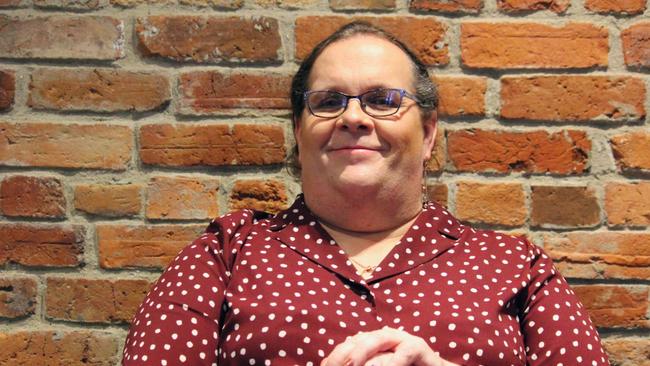
Instead of receiving empathy and help when her chronic pain began at 10-years-old, her family and doctors said the pain was an imagined way to avoid doing chores.
Between ages 12 and 16 she made various suicide attempts. One study from January 2021 shows nearly half of transgender people in Australia have attempted suicide.
Ms Robins lives with disability and post-traumatic stress disorder.
“I do not sleep more than three hours before I am woken up,” she said.
When she moved to Australia 20 years ago, Ms Robins’ life began to improve, engaging in uplifting activities like helping to feed the homeless and working with the Launceston Living Library.
She was asked at the Royal Commission hearing to share a message to abusers.
“I would like to say to my abuser, I got up after you knocked me down,” Ms Robins said.
“I’ve succeeded where you said I could not and would not.
“I’m dyslexic, and I’m a published author with a higher education.
“I am a person who deals with chronic pain and I have stood on the top of glaciers, even though every step to get to that top was excruciatingly painful.
“And to any child who’s experiencing abuse, I tell you, you’re worth every breath.”
Resources:
1800 Respect: 1800 737 732
Blue Knot Counselling and Referral Service: 1800 421 468
Lifeline: 13 11 14
Beyond Blue: 1300 224 636
Tas Police keen to improve on responses to family violence against people with disability
Tasmania Police Commissioner Darren Hine appeared as a witness on the final day of Disability Royal Commission hearings on Friday.
He said definitions of “significant relationships” within Tasmanian family violence legislation were “a little bit narrow”.
“I think that’s one of the things that needs to be further explored, to actually expand it,” he said.
“I think there is an opportunity to review that.”
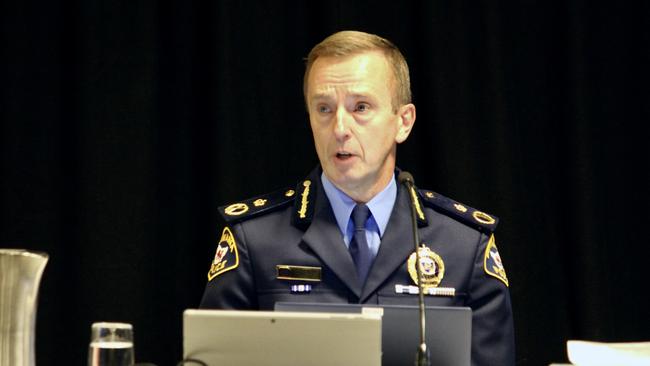
Commissioner Hine said about one per cent of victims reporting to police had identified or notified Tasmania Police of a disability.
He said police underwent extensive training in learning about disability, but there was room for improvement.
“I don’t think you can actually have too much training,” Commissioner Hine said.
“We are always going to be a learning organisation to make sure we have the best support and the best response for people (including) women and girls with disabilities.”
Senior counsel assisting Kate Eastman said some women with disability experienced “very positive” experiences reporting to police nationally, while others faced “real challenges and barriers both to reporting, to being believed”.
Ziggie’s caring cuddles soften stress for Disability Royal Commission witnesses
5.56pm Thursday, March 31
Meet the adorable pooch whose ability to empathise allows her to provide cuddles, care and emotional support to witnesses at the Royal Commission into Disability.
Golden-Labrador cross Ziggie was picked out from a bunch of Guide Dogs Tasmania trainees as a puppy for her heightened empathy.
Her career as a facility dog has taken her to hospital emergency wards, schools, and this week to the Commission hearings in Hobart to offer support to witnesses, who are sometimes required to recall traumatic experiences.
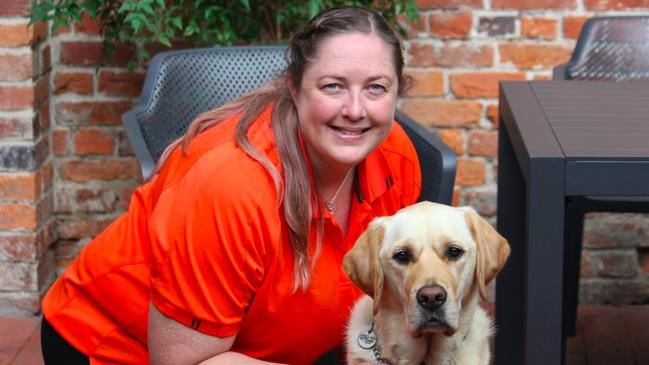
“We’re here providing a bit of emotional support, distraction from sensitive issues,” Guide Dogs Tasmania program manager Kim Ryan said.
“She’s giving them comfort by their side to give them the strength to speak out.”
Ziggie has this week cuddled up beside witnesses, and when she has recognised signs of emotional distress, she has applied deep pressure and lifted her paw up onto the person as a way of calming them down.
“We’ve seen people that have been slumped in their chairs and worried, seeing her walk into the room and smile and call her over,” Ms Ryan said.
The three-year-old dog has also helped break up emotionally charged periods for Commission staff in need of some light relief.
Ms Ryan said it felt “fantastic” to change peoples’ days and work with facility dogs like Ziggie.
She said specialist trainers monitored the dogs to prioritise their welfare.
“Ziggie is loving, caring, empathetic, and she almost smiles when people say her name. She gives a bit of a smile and a wiggle-bum.”
Royal Commission: Changes needed to empower CALD women with disability
9.51am Wednesday, March 30
Esther Simbi’s experiences with disability and her challenges as a south Sudanese refugee starting over in Adelaide have inspired her to help people from non-English speaking backgrounds.
Women from Culturally and Linguistically Diverse (CALD) backgrounds with disabilities faced extreme barriers in reporting abuse, Ms Simbi told the Royal Commission into Violence, Abuse, Neglect and Exploitation of People with Disability in Hobart on Tuesday.
The Beyond Calamity author and CALD project officer for social profit organisation Purple Orange said cultural norms allowed people to view her as incapable of making decisions and unworthy of public recognition simply because she had a physical disability.
Ms Simbi found it difficult to escape an abusive marriage when her husband and his family excluded her from financial decision-making and refused to be seen with her in public because of shame over her condition.
“Most people in the CALD community, if not all have a story to tell, but they don’t know that their story is important,” Ms Simbi told the commission.
“People in the CALD communities need proper education so that they can understand, they can be able to recognise what abuse looked like and when to report abuse and who to report it to.”
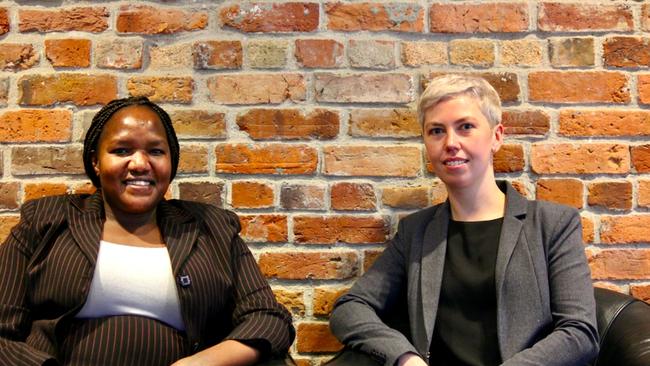
Ms Simbi grew up in an abusive home in Sudan, but said many CALD women found it difficult to recognise or define abuse.
“In most CALD cultures violence has no name,” she said.
Tasmanian Refugee Legal Service solicitor Taya Ketelaar-Jones said in her commission hearing some of her CALD clients faced barriers taking action in family violence situations for fear their partner visas would be revoked.
Some CALD women she worked with did not consider themselves to have a disability because culturally they had learned to view disability as being negative.
She said some of these women found legal processes distressing or difficult because of conditions like post traumatic stress syndrome.
“I think we often have women presenting who will be put into the CALD box and that’s the service that they will have access to,” Ms Ketelaar-Jones said.
“Or they will be put into the family violence-victim box or they will be put into the disability box and none of those interact and none of those meet the complex needs that come from falling into all of those.”
She called for a “one-stop shop” where one person could have their needs addressed, rather than needing to retell their story in each new setting.
The Royal Commission hearings will continue to hear from experts, abuse survivors and other witnesses on Wednesday, Thursday and Friday.
Royal Commission: Several men abused woman with disability
11:25am Tuesday, March 29
Claire* has always suspected that medical staff lied when they said her pregnancy was false.
The woman, who has a degenerative physical condition, detailed her experiences with medical staff and abusive partners in a hearing at Hobart before the Royal Commission into Violence, Abuse, Neglect and Exploitation of People with Disability on Monday.
“I remember my father saying that I would not get married,” counsel assisting Simone Fraser said, reading from Claire’s statement.
“I was also told I wouldn’t be able to have children because it would be physically too hard and I wouldn’t be able to look after a baby.”
When she was 17, Claire asked to be sterilised, but her gynaecologist refused the procedure.
When she was about 21 in the 1990s, health workers tried to talk her into having an abortion when they believed she was pregnant.
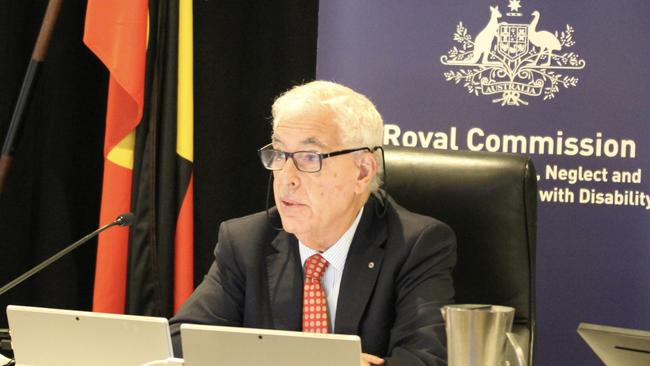
“(My parents) organised for me to travel to the city to have the pregnancy terminated,” her statement said.
“I really wanted to have the child because I could feel the changes in my body and felt a wonderful feeling of love and completeness.”
After she told medical staff she wanted to keep the baby, they questioned her ability to raise a child.
They performed a scan and told her she had a phantom pregnancy. Claire underwent a uterine curette procedure following the diagnosis.
“I have always had an overwhelming feeling that when I was told I had a phantom pregnancy that I was being lied to,” her statement said.
“I felt as though the medical staff had formed a view that I ought not be pregnant.”
Claire shared the trauma of being raped when she was 14.
“In future relationships I excused partner violence and abuse by taking the responsibility upon myself,” her statement said.
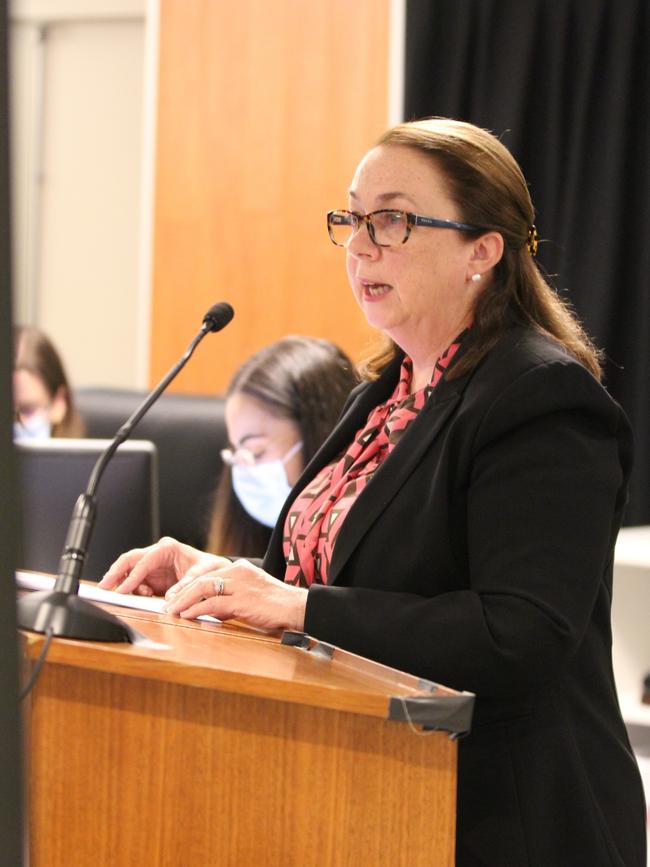
Claire’s third and fourth boyfriends were sexually abusive, while her fourth boyfriend controlled her finances and their shared car. She was violently assaulted by her fifth boyfriend.
In her hearing statement, the woman called for reform in schools to educate children about healthy and unhealthy relationships.
Claire recommended the government disability gateway website include messages about what to do in the face of violence, abuse, neglect or exploitation.
“Things like your partner always putting the keys … out of reach, asking multiple questions without waiting for a response to your first question, leaving you without any access to food or water … this information needs to be readily accessible so people with disability can identify that these things are forms of violence or abuse and find out what their options are.”
The Royal Commission hearings will continue in Hobart each day this week with statements from survivors of abuse, expert witnesses and women with disability.
*Claire’s name has been changed for her privacy
Resources
1800 Respect: 1800 737 732
Blue Knot Counselling and Referral Service: 1800 421 468
Lifeline: 13 11 14
Beyond Blue: 1300 224 636
‘He was drunk on power and I thought I was going to die’
1.07pm Monday, March 28
Chloe* was raped and treated “like a dog” by her former personal assistant, whose charming disposition was a front for his sinister motivation to make her life a living hell for six years.
It began with the man taking her phone and keeping her from her family.
The abuse escalated into brutal rapes, beatings and an assault that nearly killed Chloe when he found out she was pregnant.
The woman with Cerebral Palsy, whose name has been changed for privacy reasons, shared her story on Monday in a Hobart hearing before the Royal Commission into Violence, Abuse, Neglect and Exploitation of People with Disability.
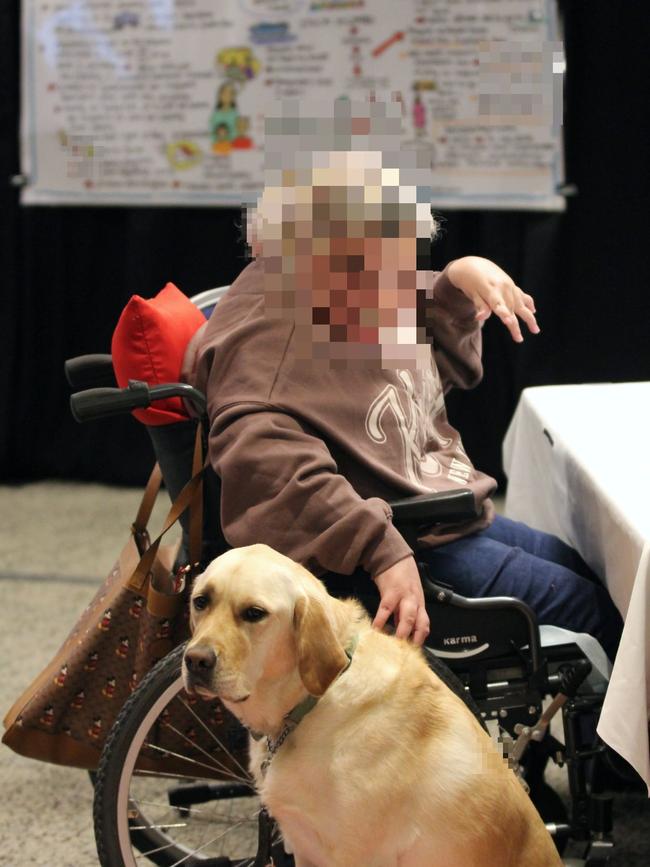
Chloe uses a wheelchair and requires a personal assistant, but in 2016 the man who was privately recruited to help her instead groomed her.
“He used to tell me I was a princess,” senior counsel assisting Kate Eastman AM SC said, reading out a statement from Chloe at the Royal Commission hearing.
It wasn’t long before he stopped trying to charm Chloe, adopting his “bad face” for her and his “good face” for everyone else.
The man took Chloe’s phone from her and cut her off from her friends and loved ones, threatening to kill her if she spoke out.
He forced Chloe to have sex, and burned cigarettes around her genitalia as punishment.
“He treated me like a dog,” her statement said.
“He tortured my dogs as well to punish me. There were so many rapes and physical assaults it was awful.”
Chloe remains too scared to use her electric wheelchair, traumatised after the man manipulated the technology and ran her into the wall.
When the abuser suspected she was pregnant, he forced her to take a test, which came back positive.
“He then beat the cr** out of me from head to foot, kicking me in the belly over and over again trying to kill my baby,” Chloe’s statement said.
“I bled all over the floor and I nearly died. He was drunk on power and I thought I was going to die.
“He had (punched) me in the eye 10 times and told me he thought the blue bruise looked good on me.”
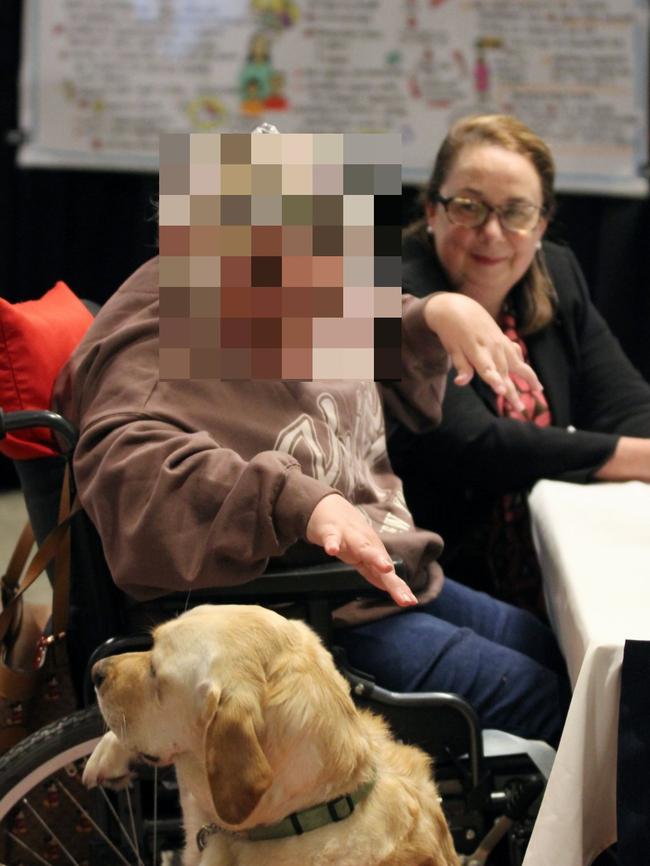
Chloe’s second assistant noticed her bruises and helped her report to Queensland Police, who believed her and charged the man with multiple counts of rape, grievous bodily harm, torture and assault.
But he “charmed and lied to the jury. They didn’t believe me … and he got off.”
Chloe said the police officer she reported to could “see right through” her abuser, but once the matter went to court she found giving evidence and not being believed challenging.
Her core message to the Royal Commission when listening to survivors was to “just believe them”.
Chloe and her pet dog have “never been the same”, but she was “glad to be alive” and slowly regaining confidence to leave the house.
“I am a survivor,” her statement said.
The Royal Commission will hold hearings every day this week in Hobart as witnesses, experts and advocates speak out on systemic abuse against women with disability.
*Chloe’s real name has been changed for her privacy
‘Distressing’: Violence, exploitation of women with disability to be detailed at hearing
11.19am Monday, March 28
Women have gathered to share their harrowing experiences in a second hearing for the Royal Commission into Violence, Abuse, Neglect and Exploitation of People with Disability.
The hearing in Hobart on Monday will run for five days as a continuation from the first hearing in October last year highlighting the harrowing experiences of women with disability who have experienced abuse.
First-hand accounts from survivors will be shared in detail over the five days of hearings this week, senior counsel assisting Kate Eastman AM SC said in her opening address.
“It will include accounts of violence, abuse, neglect and exploitation of women with disability, and that includes women with disability from First Nations backgrounds and from CALD (Culturally and Linguistically Diverse) backgrounds,” Ms Eastman said.
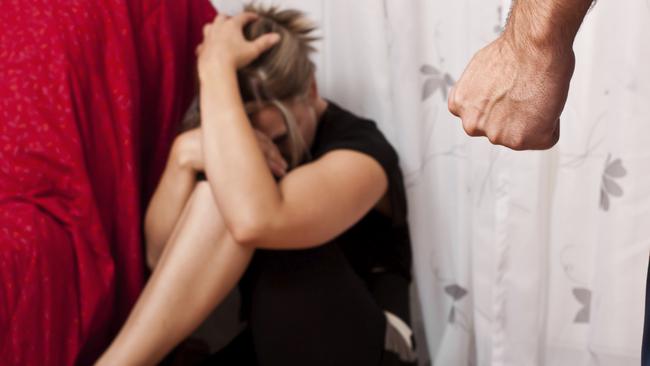
The counsel assisting said abuse had the effect of further disabling individuals and spurring a “spiral of vulnerability”.
“People with disability experience all forms of violence and abuse in their homes, including physical, sexual, emotional abuse, threat, intimidation, coercion and disability specific abuse,” Ms Eastman said at the hearing.
“This may include interference with mobility aids, equipment, and medication. It may include the use of restrictive practices, forced isolation and threats to withdraw essential care and support.”
But despite the “confronting and distressing” experiences of these women with disability, violence against them remained “seriously under-reported”.
Ms Eastman said survivors of abuse were scared of reporting for fear they would lose support, become homeless, or have their children taken from them; or because they had already faced a negative experience reporting abuse beforehand.
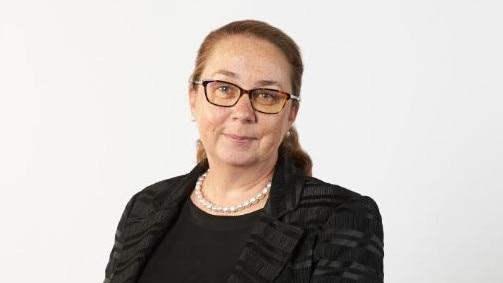
“We have asked the women to share their experiences with you and they want you to listen to them,” the Counsel Assisting said.
Data shows some 10,000 Tasmanians participate in the National Disability Insurance Scheme (NDIS), with about 3700 of these people being women and girls.
Ms Eastman said among the most vulnerable people with disability to experience abuse and violence were women, as were LGBTQIA+ people, refugees, older women, CALD and First Nations people.
She cited research from the Australian Institute of Criminology saying those with disability were over-represented survivors of sexual crimes, but the broader public lacked understanding about these offences.
“Preventing violence requires a commitment to change the norms, practices, and structures to allow gender inequality,” she said.
“A community’s attitude and norms shape the context in which violence occurs.”
Chair Honourable Ronald Sackville AO QC said listening to women with disability was vital to informing future responses and reform following the commission.





